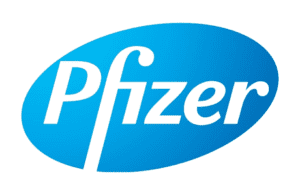 Pfizer (NYSE:PFE) and its partner BioNTech (NSDQ:BNTX) have announced that their coronavirus vaccine was 95% effective, putting it in line with the preliminary results from rival Moderna (NSDQ:MRNA).
Pfizer (NYSE:PFE) and its partner BioNTech (NSDQ:BNTX) have announced that their coronavirus vaccine was 95% effective, putting it in line with the preliminary results from rival Moderna (NSDQ:MRNA).
Pfizer’s BNT162b2 vaccine candidate appears to have an advantage over Moderna’s mRNA-1273 vaccine in terms of its low adverse event rate. Out of a randomized pool of at least 8,000 trial participants, only two Grade 3 (severe) adverse events affected 2% or more of the group. A total of 3.8% of the volunteers complained of fatigue, while 2% had headaches after receiving the second vaccine dose.
For Moderna’s vaccine, several Grade 3 events occurred that met this 2% threshold. After receiving the first dose, 2.7% complained of injection site pain. After the second dose, 9.7% reported fatigue, and 8.9% had myalgia. Other events after the second dose included arthralgia in 5.2% of trial participants, headache in 4.5%, pain in 4.1% and erythema/redness at the injection site in 2.0%.
Moderna stock has been trading near all-time highs this week after the company announced its mRNA-1273 COVID-19 vaccine was 94.5% effective in an interim analysis. Moderna’s vaccine appears to have an advantage over Pfizer’s in its less stringent storage requirements. The mRNA-1273 vaccine is stable for 30 days when stored between 2° and 8° C. Pfizer currently specifies that its vaccine candidate should be stored at –70° C.
The vaccine from Pfizer and BioNTech could be commercialized soon. BioNTech chief executive Ugur Sahin told Reuters that “if all goes positively,” U.S. deliveries could begin “before Christmas.”
The two companies plan on submitting data to FDA within a few days. Analysts from the investment bank UBS expect FDA to grant emergency use authorization for the vaccine candidate by the middle of December.
Filed Under: clinical trials, Drug Discovery





Tell Us What You Think!
You must be logged in to post a comment.